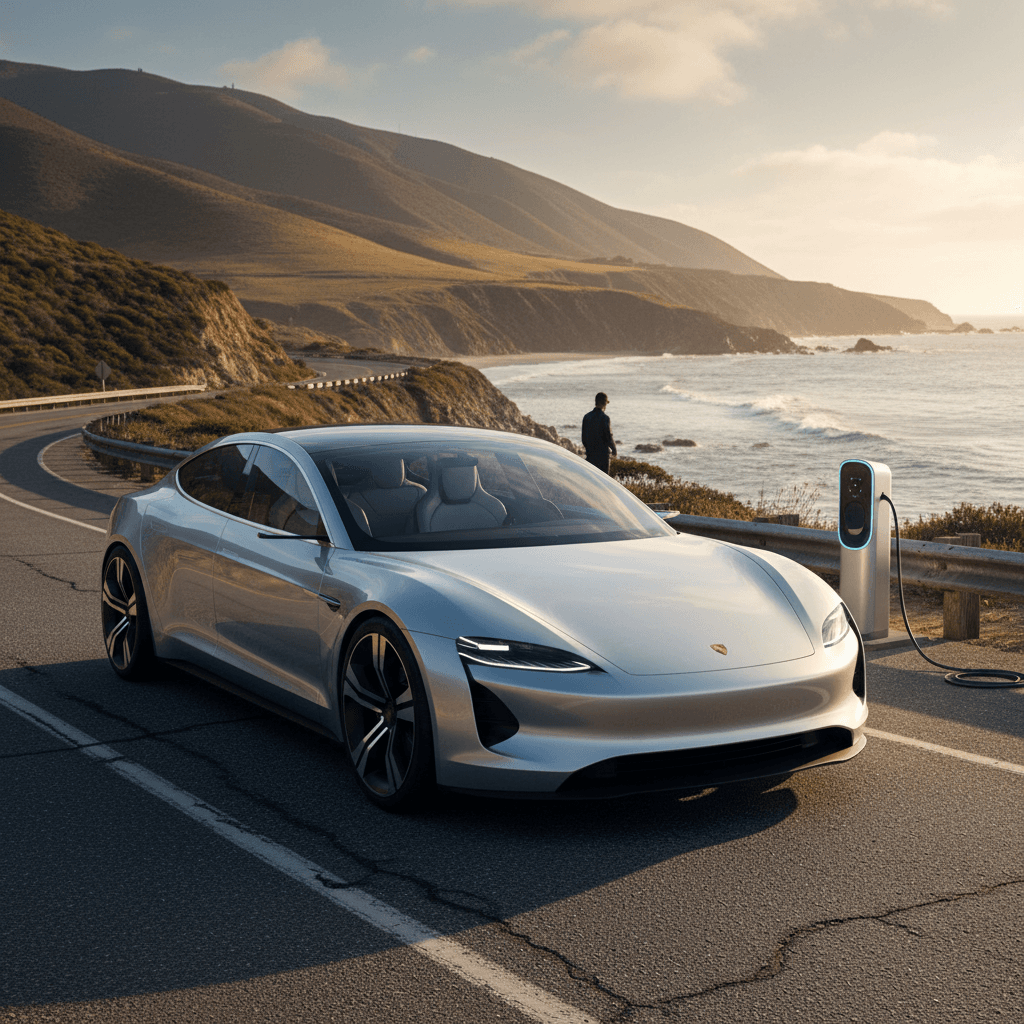If you’ve been waiting for the best electric car deals, 2025 is finally starting to feel like the moment. Used EV prices have cooled off after the pandemic spike, dealers are motivated to move electric inventory, and there are still incentives and financing tricks that can knock thousands off the effective price, especially if you’re open to buying used.
Quick take

Why electric car deals are better in 2025
Electric car prices got wild in 2021–2022. Short supply and high demand pushed both new and used EV prices way above normal. That bubble has been slowly deflating. By late 2024, the average used car price had dropped to around $27,000, down about 6% year over year, and used EVs, especially Teslas, have fallen even faster as a wave of off‑lease vehicles hit the market.
The 2025 used EV deal landscape at a glance
For you, that means more selection, more motivated sellers, and more room to negotiate, especially on models that were hot a few years ago and are now coming off lease in droves. Think Tesla Model 3, Chevy Bolt EV, Hyundai Kona Electric, Nissan Leaf and early Mustang Mach‑Es.
Where Recharged fits in
When to shop for the best electric car deals
There are electric car deals available year‑round, but the data is clear: timing matters, especially for used vehicles. Analysts who track millions of transactions find that winter is prime time, when dealers are fighting slower foot traffic and year‑end targets.
Best times of year to find used EV deals
Based on large studies of 2023–2024 used‑car transactions, winter holidays and months deliver noticeably better discounts.
| Rank | Time of year | How much better than average? | Why it matters |
|---|---|---|---|
| 1 | New Year’s Eve / New Year’s Day | +47.9% deals | Dealers push hard to close the year strong; lots of end‑of‑year discounts. |
| 2 | MLK Day (January) | +43.3% deals | A quieter shopping day when stores want traffic and are willing to bargain. |
| 3 | January overall | +41.1% deals | Cold weather and holiday bills keep many buyers away, so prices soften. |
| 4 | Presidents’ Day | +37.6% deals | Traditional sales event with extra incentives on the lot. |
| 5 | December overall | +32.5% deals | End‑of‑year cleanup on both new and used inventory. |
You don’t have to buy on a holiday, but aligning your search with these windows can give you more leverage.
Don’t wait forever
When timing matters most (and when it doesn’t)
How much you should chase the calendar depends on your situation.
Your current car is dying
If your car is unreliable or unsafe, the best electric car deal is the one that gets you into a dependable EV now. Pushing for an extra 2–3% discount isn’t worth weeks of tow trucks.
You’re flexible 1–3 months
If you can wait until winter or a big holiday weekend, you’ll likely see more cars discounted below market and more attractive financing offers.
You’re payment‑sensitive
For buyers focused on monthly payment, timing around year‑end and model‑year changeovers can matter more than the exact sale price, thanks to extra rebates or subsidized APRs.
Understanding EV prices and what counts as a good deal
With electric cars, “cheap” can be misleading. A rock‑bottom price on an older EV with a tired battery and missing fast‑charging capability can cost you more in frustration and time than it saves at signing. A genuinely good deal balances price, range, features, and battery health.
What a true deal looks like
- Price is meaningfully below fair‑market value for similar cars.
- Battery health is verified and still offers the range you need.
- Car supports DC fast charging if you road‑trip or lack home charging.
- Clean vehicle history, with no major accident or flood damage.
Red flags behind a “cheap” EV
- Unusually low price with no battery report or inspection details.
- Car sits on the lot for months with repeated price cuts.
- Listing photos avoid the charging port, underbody or tires.
- Seller dodges questions about capacity loss or charging speed.
How Recharged approaches pricing
Incentives and tax credits: how much can you still save?
In 2025, incentives are a moving target. Federal clean‑vehicle tax credits for new and used EVs officially ended for vehicles acquired after September 30, 2025, with a few exceptions for buyers who signed binding contracts before that date. But state and local perks, from rebates to HOV‑lane access, are still very much alive in many places.
Main ways incentives can improve your deal
Even as federal credits phase out, there’s still money on the table.
Leftover federal credit (contracted early)
If you entered a binding contract and made a payment on a qualifying EV before September 30, 2025, you may still claim a federal tax credit when you file, even if delivery happens afterward.
State & utility rebates
Many states, cities, and electric utilities still offer rebates or bill credits when you buy an EV or install home charging. These can be worth hundreds, sometimes more.
Dealer & lender incentives
Even without big federal money, dealers and lenders run their own promos: low‑APR financing, bonus trade‑in values, or cash discounts on slower‑moving EVs.
Don’t leave local money on the table
Finding the best used electric car deals
If you’re value‑driven, used is where electric car deals get interesting. EVs depreciate faster than comparable gas cars in their first few years, largely because new technology, fresh designs, and incentives put pressure on slightly older models. That creates opportunities, if you shop smart.
Where to hunt for strong used EV deals
Each channel has pros and cons, know what you’re trading off.
Online EV marketplaces
Sites focused on electric vehicles, like Recharged, curate only EV inventory, add battery diagnostics, and support fully digital buying, including financing, trade‑ins and delivery.
Traditional dealers
Franchise and independent dealers often discount used EVs more aggressively when they’re outside their comfort zone. But EV expertise, and battery transparency, can be hit or miss.
Private‑party listings
Private sellers can offer low prices, but you’ll need to arrange your own inspection, confirm battery health, handle paperwork, and arrange financing separately.
Watch out for “mystery battery” cars
Battery health: the deal-maker or deal-breaker
On a gas car, you worry about head gaskets and transmissions. On an EV, the big question is the traction battery. That pack is the single most expensive component in the car, and it defines your real‑world range. Two identical‑looking cars can drive very differently if one has lost 15% of its capacity and the other has lost 30%.

- Ask for a recent battery‑health report or state‑of‑health (SoH) percentage.
- Compare the shown usable range at 100% charge to the car’s original EPA rating.
- Look for any history of battery repair or replacement, this can be good or bad, depending on who did the work.
- Consider your own driving: a commuter who drives 25 miles a day doesn’t need the same capacity as a 200‑mile‑a‑day sales rep.
How Recharged’s battery report helps
Financing and trade-ins: levers that make a good deal great
When people talk about the best electric car deals, they often ignore the cost of money. A slightly higher price with a much lower APR can be cheaper over the life of the loan than a bargain sticker with expensive financing. The same goes for trade‑ins, an extra $1,500 for your old car matters more than another $200 off the EV.
What to look for in financing
- Competitive APR compared with your bank or credit union.
- No sneaky add‑ons rolled into the payment you don’t want (paint protection, unnecessary warranties).
- Reasonable loan term, stretching beyond 72 months can put you upside‑down for too long.
Getting value from your trade‑in
- Collect offers from instant‑offer tools and local dealers.
- Compare the net deal: EV price minus trade‑in plus fees, not just the trade value alone.
- Consider selling your current EV through consignment if you’re not in a rush; marketplaces like Recharged can help you reach EV‑focused buyers.
One‑stop digital shopping
Step-by-step checklist for spotting a strong EV deal
9 steps to finding the best electric car deals
1. Define your real range and budget needs
Decide how many miles you truly need on a single charge and what monthly payment fits your life. This keeps you from over‑paying for capability you’ll never use.
2. Research models and common issues
Narrow to a shortlist of EVs that fit your range, size and charging needs. Look up common issues (like early battery recalls) so you know what to avoid.
3. Watch pricing trends for a few weeks
Track asking prices for your target models in your region. You’ll quickly spot what’s an average listing and what’s a genuine bargain.
4. Target strong timing windows
If possible, start shopping in November–February or around big holiday weekends like New Year’s, MLK Day and Presidents’ Day, when deals are most common.
5. Demand battery-health transparency
Only consider EVs with recent battery data, either from a marketplace like Recharged or from a specialized inspection. No report, no deal.
6. Compare total cost, not just price
Factor in taxes, fees, estimated electricity costs, and any needed home‑charging upgrades. A slightly higher price car with lower running costs can be the better deal.
7. Line up financing before you fall in love
Get pre‑qualified so you know your real budget and can quickly spot when a dealer’s financing offer is truly better, or just shinier marketing.
8. Test drive and inspect carefully
Check charging speed, cabin comfort, tech features and ride quality. Listen for suspension noises and confirm everything from the heat pump to the infotainment system works as advertised.
9. Move fast when the right car appears
Great electric car deals, especially on well‑spec’d EVs with strong batteries, don’t sit for long. When everything checks out, be ready to sign.
FAQ: best electric car deals in 2025
Frequently asked questions about electric car deals
Bottom line: how to shop smart for an EV in 2025
The best electric car deals in 2025 aren’t just the lowest prices you see in a search result. They’re the cars that fit your life, have healthy batteries, come with transparent history, and are bought at the right time with the right financing behind them. Combine softer used‑EV prices with winter‑season timing, remaining incentives and good battery data, and you can save thousands without gambling on an unknown car.
If you’re ready to start looking, explore EV‑focused marketplaces like Recharged, where every car includes a Recharged Score battery report, expert‑guided support and flexible options for financing, trade‑ins and nationwide delivery. Do a bit of homework now, and your next charge could start with a genuinely great deal, not just a clever ad.

